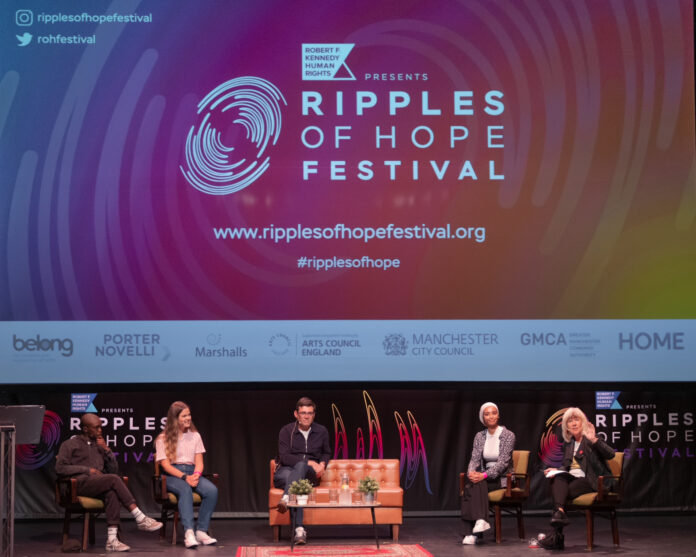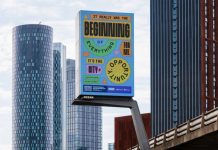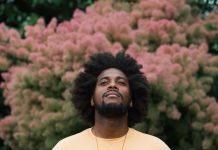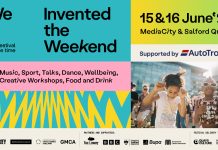“My generation of politicians has messed it up massively – I think the next generation will put it right” says Andy Burnham, Mayor of Greater Manchester, on third day of Ripples of Hope Weekend at HOME, Manchester
During Sunday’s final session, Mayor of Greater Manchester Andy Burnham shared his visions of a Human Rights City, which he believes is “a city that gives every person living here security of the basics, but [also] security in the knowledge that they can be who they want to be, without fear of any discrimination or hate.” Andy also addressed growing attacks from right-wing media and political parties, saying “the concept of human rights has been under attack from right wing newspapers and politicians for quite a long period of time – they have undermined public support for human rights.”
Other key highlights from the weekend included:
- Afghanistan: Friday’s closing session addressed the human rights violations – especially for women – currently taking place in Afghanistan. Journalist Yasmin Alibhai-Brown led the discussion, with former Afghanistan judge Qazi Marzia Babakarkhail providing harrowing and brutally honest evidence of the plight of female judges currently in hiding.

- LGBT+ rights: On Saturday, Human rights campaigner and broadcaster Peter Tatchell discussed the escalation of oppression against LGBT+ communities over the past decade. He added that this regression enforces the need to remain vigilant and never to take any gains won for granted.

- Racial justice: “We can’t take anything for granted, including our success”. Journalist and broadcaster Gary Younge spoke on Saturday about how to deal with setbacks when it comes to progressing equal rights and racial justice. He said: “Fighting is no guarantee of victory. But not fighting is a guarantee of defeat.”

- Collective action and climate injustice: On Sunday, former President of Ireland, former UN High Commissioner for Human Rights and Chair of The Elders Mary Robinson spoke on the importance of collective action in tackling the climate crisis and how climate injustice is disproportionately impacting marginalised groups and communities: “The climate [crisis] has affected, much earlier and much more devastatingly, the poorest countries, the poorest communities, the small island states, and the indigenous peoples. It’s [a] racial injustice.” In the same session, Founder of The Eden Project Tim Smit commented on the shortcomings of current political leadership and the need to remove political agendas from the climate change conversation: “Why should renewable energy be political? We must take ‘right wing’ and ‘left wing’ out of it – things like clean air are our birth right.”
- The power of social movements and social media: On the topic of economic growth, panellists including journalist Sophie Benson discussed how consumer-led movements can drive great change in the fashion industry (and others) – particularly in the age of social media. Former UK Prime Minister, 2007-2010, Gordon Brown, also spoke about the power of social movements, saying “We can achieve things together. We need social movements; we need everyone to understand the connection between what they’re doing and what’s happening in the world. [We] need to build on the best of people and the best that people can be.”

- Tackling child slavery and forced labour: In a discussion with 2014 Nobel Peace Prize winner Kailash Satyarthi, speakers addressed the startling levels of child slavery and exploitative child labour practices around the world today, now on the rise following the COVID-19 pandemic. Kailiash outlined several ways that consumers can act responsibly and boycott products produced using child labour – and how urgent it is to take action now – adding “Even if one child is forced into slavery today, we cannot call ourselves civilised and cultured.” According to Kailash, to put an end to child slavery “we need to triple our efforts.”

- A weekend of poetry: Each day concluded with a poetic declaration – curated by Poet Laureate Simon Armitage – where writers like Keisha Thompson and Jay Bernard delivered a specially commissioned poem, each representing an article contained within the Human Rights Act. In total, a group of 30 poets attended from across the world to perform a new body of work – ‘The Poetic Universal Declaration of Human Rights’ – which can now be read here.








